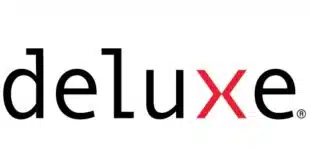Merchant cash advances for online retailers suddenly are coming into vogue with the entry of PayPal Inc. into the market. PayPal recently disclosed that it plans to test in its home country a cash-advance program similar to one it has tested in the United Kingdom.
Finance companies and merchant processors have offered cash advances to brick-and-mortar merchants for years, but many banks and non-bank lenders have shied away from e-commerce merchants because of the risk, according to Janinne Dall’Orto, senior manager at Linthicum, Md.-based First Annapolis Consulting Inc. But the entry of PayPal, a subsidiary of online marketplace eBay Inc., shows there is a market opportunity in lending to Web-based merchants.
Plus, a specialty lender to Web-based small businesses, Atlanta-based Kabbage Inc., announced Wednesday that it had received a new $75 million debt facility to expand its business.
“I think they [PayPal] came to fill a void in the merchant cash-advance space,” Dall’Orto tells Digital Transactions News. “Other than Kabbage, who focuses on online merchants, there are not that many advance companies that provide advances to online merchants.”
PayPal revealed it was eyeing the U.S. merchant-cash advance market last week during an eBay investor event. The San Jose, Calif.-based company didn’t give many details about its coming test, but it is expected to start this year and be modeled on the British program, which is now being rolled out. The U.S. pilot will come through PayPal’s lending unit, Bill Me Later, which eBay bought in 2008. Bill Me Later gets funding from WebBank, a Utah-chartered industrial bank.
Merchant cash advances typically involve a merchant committing a portion of its future credit card sales to the advance provider in return for up-front capital. Such advances typically don’t come cheaply. In an example provided by PayPal for its U.K. program, a £12,000 ($18,300) advance deposited into the merchant’s PayPal account is to be repaid over seven months, with the merchant paying a total of £15,240 ($23,200), or 27% above the principal. PayPal’s partner lender in Britain is United Kapital, which will lend a business up to £25,000 ($38,000) in the PayPal program.
While costly, merchant cash advances have been the only source of credit for many small businesses and the business boomed before the recession, according to Dall’Orto. But even in the good times, many advance providers stayed away from e-commerce retailers because of the high perceived risk. PayPal’s entry signals not only that the economy is recovering, but also that cash-advance providers are willing to take a new look at Web-based merchants, she says. In this respect, PayPal may have an advantage because of its experience in providing payment services to thousands of eBay-based merchants.
“PayPal is well-positioned to provide cash advances to the online merchant base,” she says. For an eBay retailer, “PayPal has a lot of historic information about that merchant for underwriting.”
A PayPal spokesperson says the coming test shows how Bill Me Later “has changed our model” and funding mix. “Now it’s a revenue stream,” he says.
A spokesperson for a leading merchant cash-advance company, New York City-based Capital Access Network Inc., says by e-mail that PayPal’s announcement “demonstrates the momentum behind and increasing credibility of alternative finance products, which Capital Access Network pioneered.” The spokesperson wouldn’t comment in detail about PayPal, but says that after Capital Access’s 15 years in the business, “we have learned what these small businesses really need is an experienced merchant-finance partner.” The company’s brands include AdvanceMe and NewLogic.





